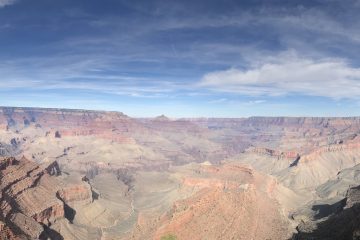Here’s my experience creating an LLC this month, and some tips about why yoga teachers may want to create one for themselves.
LLC stands for Limited Liability Company. It is an easier structure to create and manage as a small business, as opposed to that of a corporation. An LLC can be created by one person or multiple people. Broadly speaking, the LLC offers a barrier of legal protection between your business dealings and assets and your personal self and assets. Because our society is quite litigious, it’s important to protect your assets – even from yogis. An LLC is also important for separating and paying taxes on your earnings, whether your yoga teaching is on the side or is your primary source of income.
A very useful website that helped me form my LLC is here:
(I encourage you to seek outside advice! I am not a lawyer.)
The process varies by state, but overall, it’s a very simple and straightforward process that cost me just $100 in Georgia (there is an annual renewal fee of about $50). The steps I’ve taken so far are listed below:
- I chose a name for my LLC that was not similar to any other name in Georgia (Angela Hales Yoga, LLC). You can do a name search on the Secretary of State website for your state to see if your desired business name is already taken.
- I submitted my information online to the Secretary of State (following the tutorial of the hyperlinked website, LLC University, above).
- In a few days, I received an approval email granting me my LLC!
- I applied for an EIN (Employer Identification Number) online, which is important to have for tax purposes and also is required to open a business checking account.
- I opened a business checking account with a bank that I had barely ever heard of, Bank of the Ozarks. I chose them over larger banks because their fees were easier to avoid with their most basic business checking account, Small Business Checking. I just needed $100 to open the account (in addition to the EIN and the Articles of Organization from my LLC, which were emailed to me in the approval email). This was a better deal even than Chase, a second choice for me, because Chase requires a $1500 minimum balance in the account at all times. Bank of the Ozarks, however, has monthly fees associated if you open the account to allow multiple user access, opt for paper statements, and if your business requires a high number of transactions per month, you’d want a different account than their Small Business Checking.
- As I am not currently planning on opening a studio, I won’t be discussing permits and licenses for the physical location.
- Down the road, I’ll post about taxes… 😀
You may be asking… do I need to create an LLC if I teach yoga as an employee, rather than an independent contractor?
Yoga teachers are generally classified either as employees (of a studio, gym, etc.) or as independent contractors, again, with a studio or gym, or often through teaching private lessons and workshops. This distinction is ultimately based on the employer – does the employer have, in general, quite a bit of oversight regarding your teaching, schedule, etc.? Then you technically should be classified as their employee. Or is sequencing, teaching, scheduling, and more left mostly up to you? The more latitude you have, the more likely it is that you are (or should be) classified as an independent contractor. Overall, this distinction is a gray area, so it’s important to know your particular classification by speaking with your employer.
While it is not necessary to create an LLC if you are considered an employee, it’s certainly helpful to create that legal protective shield between your business activities (yoga teaching, such as private lessons) and your personal life. It’s also great to be able to get tax deductions as a business for all your travel between studios, purchase of gear (clothes, foam blocks, etc.), and more. It’s crucial that you estimate your tax payments correctly, since you have no employer withholding Social Security or Medicare, and you also owe federal taxes.
For either classification, if you work at a studio, you’ll almost certainly have liability coverage through the studio. However, the LLC is an extra layer of liability protection. (I strongly recommend also purchasing personal liability insurance; mine is through Yoga Alliance but that’s just one option.) If you teach clients privately, the LLC is, in my opinion, essential. The company could be sued and its assets taken away, but your personal assets would be protected.
Disclaimer: The materials available at this website are for informational purposes only and not for the purpose of providing legal advice. You should contact your attorney to obtain advice with respect to any particular issue or problem.

Me, biking on the Silver Comet Trail last weekend (non-asana activities balance us out, physically and mentally!)

16 Comments
Matt Horwitz · January 21, 2019 at 2:03 am
Hey Angela! Nice write-up. I’m happy to hear you found our website helpful 🙂 Good fine with Bank of the Ozarks and the lower deposit minimums, too. I don’t know the bank personally, but I’ve seen them around. Great to know. Checked out your website and some social media – looks like you’re up to great stuff. Best wishes with the business!
Angela Hales · January 23, 2019 at 3:21 pm
Hi Matt, Thank you! I frequently refer yoga teachers I meet in person to your website as well. Such helpful content!
Jackie · February 19, 2019 at 5:31 pm
Whem creating your purpose statement, did you keep a general statement or create a more specific one? Thanks! Great article!
Angela Hales · February 23, 2019 at 1:13 pm
Hi Jackie, I recommend making your statement of purpose for your business as specific as possible, while still keeping it concise.
Melinda · May 13, 2019 at 10:32 pm
Thanks for this Angela! Question. I recently opened a business bank account to better track my yoga income + expenses. However I get paid in both W2s and 1099s and am questioning know if all paychecks should be deposited in my business account vs my personal one now? Any thoughts on this?
Angela Hales · May 21, 2019 at 11:06 am
Hi Melinda, There’s no hard and fast rule about this. Having a business bank account is mainly a way to keep your business earnings and expenses separate from your personal transactions. It makes accounting and doing taxes easier. That being said, it’s definitely possible to have your business income sources deposited into different accounts. In that case, it would be imperative to record every deposit and expense in a central location. I do this in a spreadsheet, and I enter every purchase and expense as soon as it happens, for accuracy’s sake. I also think that the answer to your question depends on the volume of money and the frequency of transactions. If you have a large volume of money and very frequent transactions for your business, it will be vastly easier to handle it all from the same account.
kovaisky yoga · November 1, 2019 at 9:56 am
Inner peace
Millions of people yearn to visit serene places and connect with natural beauty. However, they seldom become aware that true peace is found within, by silencing the whirlwind of thoughts and living in the present moment. Along with meditation, yoga is one of the most effective tools to appease a disturbed mind. In fact, after a series of body postures, the mind is quieter and prepared for meditation.
Angela Hales · November 11, 2019 at 11:10 pm
Agreed!
Shikha · February 10, 2020 at 2:15 am
Hello Angela, very informative. Quick clarification on signing the contract with yoga studios. Should it be with the LLC we create or with us as individual? Also, do we need to take any additional insurance for the LLC or just personal insurance as teacher through yoga alliance (Alliant) is sufficient.
Thanks 🙏🏻
Angela Hales · February 17, 2020 at 2:17 pm
Hello,
Great question! I always handle all yoga-related business with studios, retreat centers, and private clients through my LLC (which also happens to be my name). I ensure that payment, taxes, everything is handled through my LLC. It’s important to me to keep my business separate from personal things. Regarding insurance for your business, it depends on what form your business will take. If you have a brick-and-mortar location, you will definitely want to look into not just insurance for your physical location, but also all of the local permits you will need to operate. If, however, you don’t have a physical location, and you are just teaching yoga, then personal liability insurance that covers the style of yoga you teach is sufficient for most teachers. As a note, it’s good to find out what types of insurance the studio or organization with whom you’re parterning has and what exactly that covers. Hope this helps!
-Angela
Disclaimer: The materials available at this website are for informational purposes only and not for the purpose of providing legal advice. You should contact your attorney to obtain advice with respect to any particular issue or problem.
Brandi Lawson · June 4, 2020 at 3:01 pm
So I plan on teaching classes online just me from home- would I need to create an LLC? I just want to offer people classes they can take 1:1 and receive payment for that. I haven’t had any yet but is this the best way to proceed?
Angela Hales · June 16, 2020 at 3:00 pm
Hi Brandi,
In my opinion, creating an LLC is almost always the best way to go when accepting payment for teaching yoga, whether online or in-person, especially if you plan to teach longer-term. It provides that extra layer of protection for you personally and helps to legitimize your business. It’s also helpful come tax time.
-Angela
Priya Sharma · December 13, 2020 at 10:06 am
Hi Angela,
I’m planning on creating an LLC and teaching yoga online. Did you request for a professional license when you applied for an LLC? Did you need to obtain licenses as well, or did you just apply for the LLC and EIN?
Angela Hales · December 14, 2020 at 9:50 am
Hi Priya,
Since I don’t have a brick-and-mortar business, there was no need to apply for licenses that would be associated with having an in-person establishment. Also, since teaching yoga in the U.S. is not a professionalized field in the conventional sense (like nursing, for example), there aren’t any professional licenses one is required to have in order to teach. So, while it’s responsible to have yoga teaching certifications and trainings under your belt, there isn’t (yet) any requirement to have a license.
-Angela
Disclaimer: The materials available at this website are for informational purposes only and not for the purpose of providing legal advice. You should contact your attorney to obtain advice with respect to any particular issue or problem.
PalB · March 1, 2025 at 6:22 pm
Namaste Angela,
I was debating whether to create an LLC or not for my yoga teaching and stumbled upon your website! Reading your blog posts along with the comments and responses has given me a clear answer. Invaluable. I also found the LLC University link extremely helpful. IDK if you are still seeing and responding to messages in 2025 but this advice seems timeless. Do you still have your small business account in the Bank of Ozarks? Thank you. Peace and love!
Angela Hales · September 11, 2025 at 4:30 pm
Hi! My apologies – I’m just now seeing your comment. The Bank OZK branch near my house closed, so I’ve changed my accounts and keep my Google Sheets ledger up to date!
-Angela